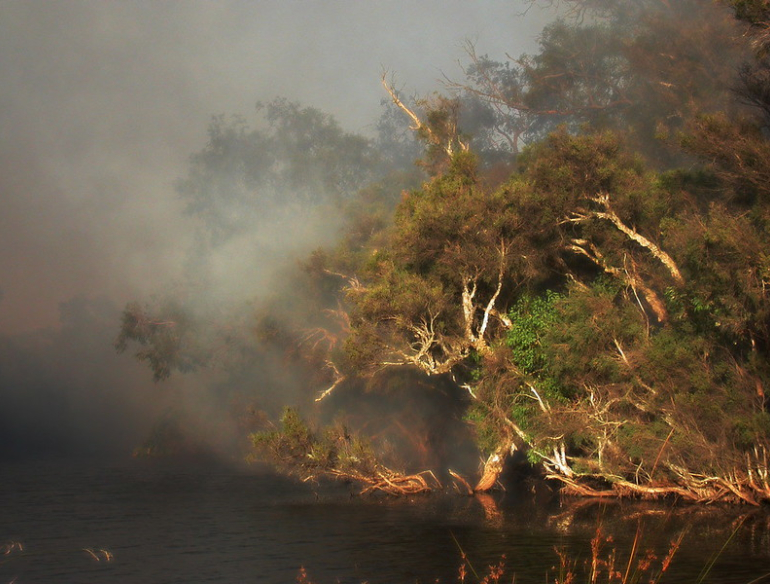Face masks have been a topic of critical health importance in 2020. The dialogue currently surrounds their use in the midst of the COVID-19 pandemic. But it was only a matter of months ago that Australia saw its most devastating bushfire season over the 2019-2020 summer, and supplies of N95 and P2 respirator face mask supplies were deployed to protect the community, and critically, fire fighters, from hazardous smoke pollution.
They were an invaluable resource during that time, but the extent to which these masks protect against medium-term health damages caused by prolonged exposure to bushfire smoke is unknown.
The Kirby Institute’s Professor Raina MacIntyre has been awarded almost $500,000 funding by the Australian Government’s Medical Research Future Fund as part of its Bushfire Impact Research Grant scheme to determine the impact of face mask use on respiratory outcomes during the recent bushfire season. The $5 million scheme was established to investigate the physiological and mental health effects of the recent bushfires on Australians and their communities.
“During the recent bushfire season, the advice to stay indoors and use P2 and N95 respirators was widespread. While this was the best practical advice that could be adopted during such an emergency, it was driven by informed common sense, rather than evidence,” explains Professor MacIntyre. “There is a gap in evidence about these measures in protecting against prolonged smoke exposure, particularly for asthma sufferers and those with other respiratory conditions.”
The study will take place during the next bushfire season. Adults with existing respiratory conditions including asthma can participate in the study and will be randomly allocated one of three interventions: use of a surgical mask, which covers the face but does not seal; use of a P2 or N95 respirator mask, which is sealed around the nose and mouth, enabling air to only enter through the filter on the mask; and staying indoors. Participants will be notified when air pollution reaches the determined level as a trigger to use the mask, and make note of the impact on their breathing.
Professor MacIntyre is an international leader in face mask research and has led the largest body of published clinical research on the use of face masks and respirators in the community and in health care for prevention of infection. “The bushfire seasons in Australia are becoming longer and more intense over time, and inevitably will continue to do so. We need to be prepared and ensure we are driven by evidence in order to best protect the community,” she says.
This project will be conducted alongside a team of UNSW researchers including Dr Holly Seale and Dr Abrar Chughtai at the School of Public Health and Community Medicine, as well as leading international asthma and lung health expert Professor Guy Marks, and asthma and primary care expert Associate Professor Smita Shah at the University of Sydney.
In announcing the Bushfire Impact Research Grant scheme, Minister for Health Greg Hunt said that the projects, including Professor MacIntyre’s, will assist in planning for the next emergency.
“This research will help Australia remain at the forefront of preparedness and recovery in the event of natural disasters, including bushfires,” he said.
